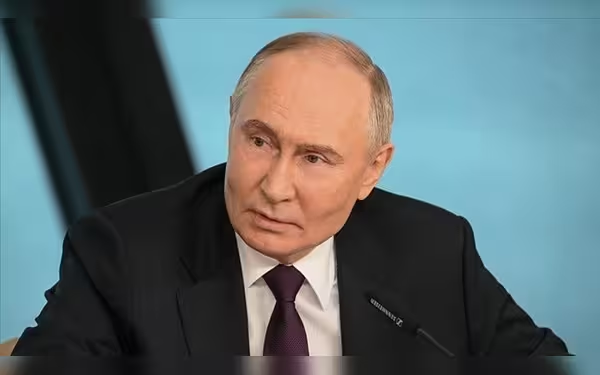Sunday, December 22, 2024 09:10 AM
Russia Revises Nuclear Doctrine Amid US Tensions Over Ukraine
- Russia updates nuclear doctrine under Putin's approval.
- Nuclear strike possible in response to conventional attacks.
- Global security stability questioned amid rising tensions.
 Image Credits: tribune.com.pk
Image Credits: tribune.com.pkRussia updates its nuclear doctrine, allowing strikes in response to conventional attacks amid escalating US tensions over Ukraine.
In a significant development that has raised eyebrows globally, Russia has updated its nuclear doctrine amid escalating tensions with the United States over the ongoing conflict in Ukraine. This new framework, approved by President Vladimir Putin, outlines the specific conditions under which Russia might resort to using its vast nuclear arsenal. The decree, made public on Tuesday, marks a pivotal moment in international relations, particularly in the context of the ongoing geopolitical strife.
Analysts have pointed out that the most notable change in this updated doctrine is the stipulation that Russia could consider launching a nuclear strike in response to a conventional military attack. This attack could be directed at Russia itself or its ally, Belarus, if it is perceived to create a "critical threat to their sovereignty and (or) their territorial integrity." This shift in policy underscores the seriousness with which Russia views its security and the lengths it may go to protect its interests.
The implications of this updated nuclear doctrine are profound. It signals a more aggressive posture from Russia, suggesting that the country is willing to escalate its military response in the face of perceived threats. This could lead to a dangerous escalation of tensions not only between Russia and the United States but also among NATO allies, who may feel compelled to reassess their own military strategies in light of this new development.
Furthermore, this change in doctrine raises questions about the stability of global security. The potential for miscalculation in a high-stakes environment where nuclear weapons are involved is a cause for concern. As nations navigate this complex landscape, the need for clear communication and diplomatic engagement becomes even more critical.
The updated Russian nuclear doctrine is a stark reminder of the fragile state of international relations today. As countries grapple with the implications of this new policy, it is essential for global leaders to prioritize dialogue and diplomacy to prevent misunderstandings that could lead to catastrophic consequences. The world watches closely as these developments unfold, hoping for a resolution that ensures peace and stability for all.













